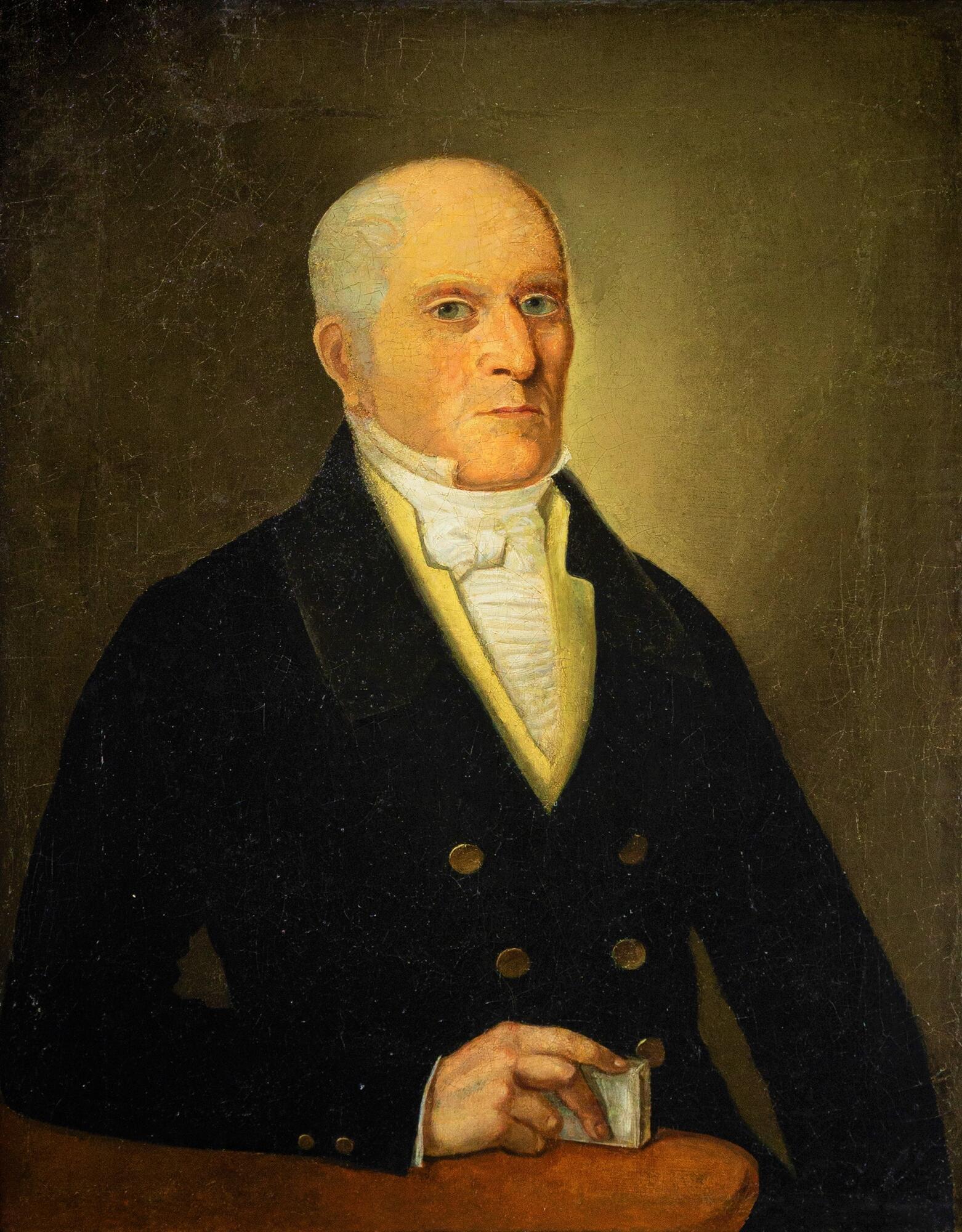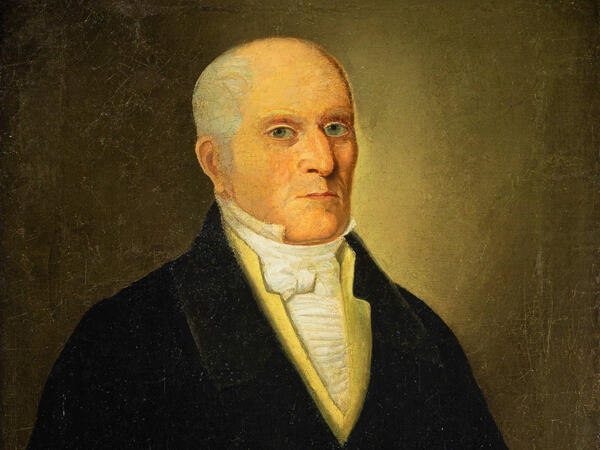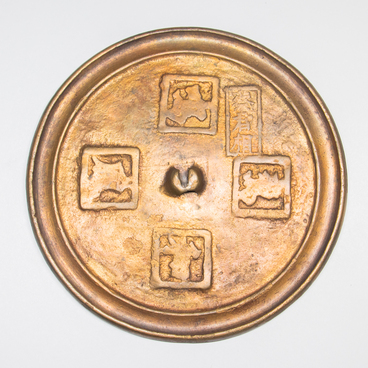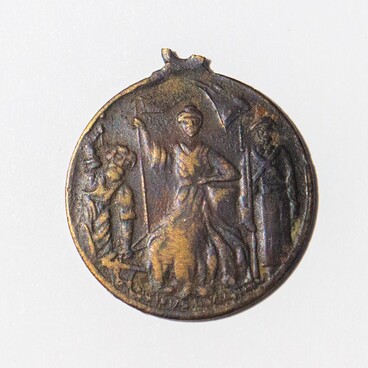The exhibition features a portrait of the statesman Mikhail Speransky by an unknown artist.
Speransky was born in the family of a priest serving in the estate of the Counts Saltykovs. He got an education at Saint Petersburg Alexander Nevsky Seminary.
From 1803 to 1807, Speransky worked at the Ministry of Internal Affairs, and then he was appointed State Secretary of the emperor Alexander I. In 1809, he became a member of the Law Drafting Commission. In that post, he prepared ‘Introduction to the Code of State Laws’, a reform of the State Council and ministries.
In 1812, Speransky was unreasonably accused of high treason and exiled first to Nizhny Novgorod, and then to Perm. In 1816, he was acquitted and appointed governor of Penza. And by decree dated March 22, 1819, Speransky was charged with auditing the Siberian administration.
Speransky visited most of the region, its major cities, as well as Omsk, Verkhneudinsk, Kyakhta, Semipalatinsk. He established several commissions which conducted investigations in the territories entrusted to them: Nizhneudinsk, Verkhneudinsk, and Irkutsk. Speransky sent officials with revision to Narym, Turuhansk, and Kirensk Uezd. At that time, notes on the state of affairs in the Okhotsk-Kamchatka region were prepared.
This large-scale inspection revealed flagrant cases of arbitrariness, embezzlement, and bribery. As a result, the Siberian governor-general Ivan Pestel, the governors of Tomsk and Irkutsk were dismissed and 48 officials were put on trial. In total, almost 700 people turned out to be involved in malpractice. The sum of the penalties amounted to about 3 million rubles.
In 1821, Speransky was returned to Saint Petersburg and was appointed a member of the State Council. To consider his report and plan of reforms, on June 21, 1821, the First Siberian Committee was created. The tsar approved 10 laws suggested by Speransky. The reform of 1822 divided Siberia into two governorates-general: Western Siberian and Eastern Siberian, with capitals in Tobolsk (since 1839 — Omsk) and Irkutsk. In 1826, Speransky headed the Second Section of His Imperial Majesty’s Own Chancellery. Under his command, the Full Collection of Laws and Collection of Laws of the Russian Empire were prepared.
Speransky was born in the family of a priest serving in the estate of the Counts Saltykovs. He got an education at Saint Petersburg Alexander Nevsky Seminary.
From 1803 to 1807, Speransky worked at the Ministry of Internal Affairs, and then he was appointed State Secretary of the emperor Alexander I. In 1809, he became a member of the Law Drafting Commission. In that post, he prepared ‘Introduction to the Code of State Laws’, a reform of the State Council and ministries.
In 1812, Speransky was unreasonably accused of high treason and exiled first to Nizhny Novgorod, and then to Perm. In 1816, he was acquitted and appointed governor of Penza. And by decree dated March 22, 1819, Speransky was charged with auditing the Siberian administration.
Speransky visited most of the region, its major cities, as well as Omsk, Verkhneudinsk, Kyakhta, Semipalatinsk. He established several commissions which conducted investigations in the territories entrusted to them: Nizhneudinsk, Verkhneudinsk, and Irkutsk. Speransky sent officials with revision to Narym, Turuhansk, and Kirensk Uezd. At that time, notes on the state of affairs in the Okhotsk-Kamchatka region were prepared.
This large-scale inspection revealed flagrant cases of arbitrariness, embezzlement, and bribery. As a result, the Siberian governor-general Ivan Pestel, the governors of Tomsk and Irkutsk were dismissed and 48 officials were put on trial. In total, almost 700 people turned out to be involved in malpractice. The sum of the penalties amounted to about 3 million rubles.
In 1821, Speransky was returned to Saint Petersburg and was appointed a member of the State Council. To consider his report and plan of reforms, on June 21, 1821, the First Siberian Committee was created. The tsar approved 10 laws suggested by Speransky. The reform of 1822 divided Siberia into two governorates-general: Western Siberian and Eastern Siberian, with capitals in Tobolsk (since 1839 — Omsk) and Irkutsk. In 1826, Speransky headed the Second Section of His Imperial Majesty’s Own Chancellery. Under his command, the Full Collection of Laws and Collection of Laws of the Russian Empire were prepared.



